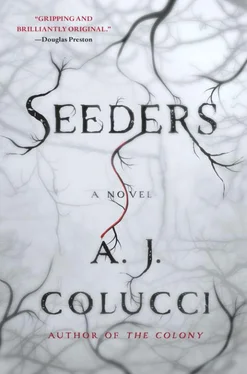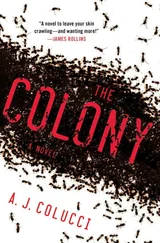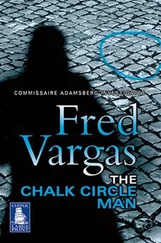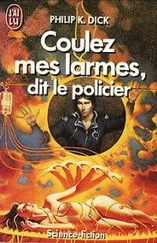Everyone grabbed suitcases and backpacks and lined up to depart. Luke was first to hop off the boat.
“Careful, fella, dock is greasy,” Flannigan said, tying up the stern.
They were all finally standing on land and no one was more pleased than Isabelle. The air was cold and damp like she remembered. A constant breeze blew over the island, carrying droplets of salt that coated everything in a layer of white.
She was struck with a feeling of being home as she gazed over the beach, and a flood of memories assaulted her senses: the smell of fish, the ripping sound of wind, the taste of salty air in her mouth. She used to paddle around the shallows, squealing with delight, until a wave hit the back of her head and her body would roll over itself, white foam and sand churning before her eyes, stinging her throat. She’d laugh as the tide dumped her onshore, coughing, sputtering, and running back to the sea for more. When it was warm, she’d lie on a towel and read stacks of books, or catch minnows in the tide pools with her hand, scooping up their slippery bodies as they flailed, and dropping them in a bucket.
Isabelle turned her gaze to the jetty, where she would sit on the cool wet stones and look out to sea, watching for boats that never came, feeling the rush of wind on her cheeks and hearing the roar of the waves that smashed against the cliffs. And all around, towering trees hemmed the beach, sentinels of the island.
Bonacelli reached for Isabelle’s suitcase and started down the gangway. Normally, she would have insisted on carrying her own bag, but the lawyer seemed like the type of gentleman who might be insulted.
Luke watched him, impressed by his chivalry, and picked up Monica’s duffel bag, rocking as he walked with two heavy loads. Instead of being grateful, Monica punched him in the arm and told him not to drag it. The island was a bit warmer and less windy than the boat, but everyone kept their jackets snug as they started down the gangway. Bonacelli told the captain he would be returning, and asked him to wait a couple of hours until his business was complete.
Flannigan smiled at Isabelle. “’Eard yer ’usband’s comin’ to join ye later on. Shall oi pick ’im up den?”
Her cheeks flushed. “It seems he’ll be getting a lift from the Coast Guard.”
Flannigan looked impressed. “Military man, eh?”
“Policeman,” Isabelle said. She gave Flannigan a few dollars for his kindness.
“Aye, God bless yer cotton socks, miss.”
Sean waved to the boat.
Flannigan waved back. “Fair weather to ye, son.”
* * *
The path through the woods was marked with red tags nailed to trees that led straight to the house. It was a twenty-minute hike and Isabelle let Luke and Monica walk ahead. Sean trailed behind his mother, gathering pinecones.
“Stay close,” she told him with an uneasy gaze.
Isabelle and Bonacelli stepped carefully over the littered ground. Neglect had narrowed the path with rotting logs and fallen branches, hanging vines and pricker bushes desperate to scratch. At times the path seemed to disappear completely.
Isabelle couldn’t see the older kids anymore, but heard a bout of laughter and then all was quiet. She hoped they didn’t accidentally veer off course; it was easy to get lost in these woods if you didn’t know the way. Countless times she had walked this trail, but now it seemed unfamiliar. The woods were murkier, gloomier than she remembered. Overhead, a few trees had begun to sprout leaves, but mostly the canopy was a web of naked limbs. White-skinned birch, mangled oaks, and towering pines with paltry needles.
Isabelle felt a twinge of fear, which made her feel foolish. As a child she’d never been afraid of the woods—never afraid of anything—and it was troubling to think how such a brave little girl could have grown so meek. She thought of the stories George had told, silly attempts to scare her. She could almost see their tiny heads hanging from trees, antique faces with knowing expressions, dead eyes rolling back in their sockets.
“Doll Head Woods,” she whispered.
“Pardon?” Bonacelli said.
“The man who lived on the island before my father collected dolls. He would slice off their heads and hang them from tree limbs. George said that when he arrived, he had to cut down hundreds of dangling heads.”
“Grizzly story to tell a child.”
“I wasn’t afraid. The poor man had lost all his money in the stock market and came to the island with his daughter. She was young, maybe five, and she died in some horrible accident right in these woods. Anyway, the man was convinced he was cursed and started hanging doll heads everywhere. People thought he went crazy, but my father said he believed the dolls kept out evil spirits. He hung the heads facing every direction, keeping an eye on the demons. I thought it made perfect sense at the time.”
A second trail cut across their path and they stopped.
“We keep straight, take the one in the middle,” she said.
“Where do the other two lead?” the lawyer asked as they continued walking.
Isabelle recalled that the path to the left was mostly thick woods and difficult to navigate, but the path going right had a lot of steep rocks to climb and a small pond as well.
“My mother called it Ice Pond because it was too cold to swim, and we skated there every winter.”
“There must be lots of places for a child to explore.”
“Not really. It took some imagination to have any fun by myself.” She glanced around at Sean, who was busy examining something on the ground. “George must have been lonely.”
Bonacelli nodded. “For a while he took in students. Poor kids from farms or working the boatyards, strays backpacking through Nova Scotia. He gave them work and a place to live. Some were grateful but most took advantage of his kindness. He finally gave up on civilization.”
They walked in silence, until he said, “Do you want to know what happened?”
She knew he was referring to George’s death and stopped abruptly. “Yes. I do.”
He paused beside her. “Your father jumped off the cliffs at High Peak.”
For a moment, she didn’t say anything. Then she nodded and continued their walk. “Were drugs involved?”
He shrugged. “I’m afraid the body was too decomposed. It was caught among the rocks and in rough water for days until we found him.”
She fell silent again.
“Your father was tormented. Some people are just made that way through no fault of their own. He was a good man, Isabelle.”
“Please don’t make excuses.” She glanced around the woods where George had spent half his life and wondered what kind of demons could have tormented him into such a tragic ending. She stared at the trees, silent witnesses, and whispered, “Perhaps he should have left the heads hanging.”
THE TRAIL ENDED, and the woods opened to a vast clearing of unbroken sky. In the distance, the house stood under yellow sunlight, surrounded by tall fields of ryegrass that blew like waves in the wind.
Right away, Sean ran up the path. Isabelle didn’t try to stop him.
From where she stood, the house was lovely. It was a grand two-story farmhouse, made of rustic fieldstone and white clapboard, with pillars and porches, a lot of glass doors and windows, all under a blue slate roof. There was a path of gravel that stretched toward the house, intersecting at the halfway point with another trail, a sweeping uphill climb to the cliffs at High Peak.
Isabelle wasn’t going to think about the cliffs. She stared at the house and felt a flicker of joy that eased the painful news of her father. It was an extremely personal moment coming back to her childhood home and she resisted the urge to run up the path, straining to slow her pace. Bonacelli could sense her eagerness and told her it would be fine if she walked ahead. She did, and was soon well past him.
Читать дальше












